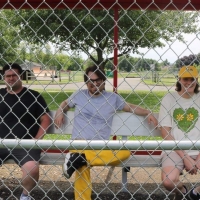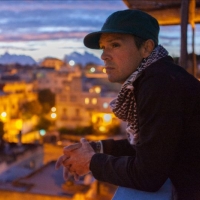My Rebel Noise inbox is empty, so I have a chance to mention an album that did not get enough attention last year—the latest from Plants and Animals.
The Jungle, released in October 2020, is Plants and Animals’ fifth studio album and first in four years. The Montreal indie-rock band broke through with its 2008 album, Parc Avenue, which featured the glorious kiss off “Bye, Bye, Bye.” But coverage of subsequent albums dwindled. Pitchfork had reviewed every Plants and Animals album since 2008, but not this one. I do not know why: the band self-produces wonderful, beautiful-sounding records, and The Jungle is no exception.
The title track features a restless bass and head-nodding beat. Plants and Animals has always captured a kind of nervous cool just as it does here. The last 90 seconds jams out. The song sounds casual, but that belies its precision and detail. The good ones can make it sound easy. Then comes “Love That Boy” with its acoustic layers, electric guitar shimmering out alien, submerged little notes, and trippy, translucent lyrics: “Is the moon following us? Is it moving at exactly the same speed? All experience connected, holding on its fingertips.” The floaty sounds complement the tight drumming and loudly churning bass.
What follows are the album’s best parts. “House on Fire” is fucking great. The hi-hat riding atop a throbbing, plucky bass; the synthesizer that comes in at 51 seconds like the air horn on a semi-trailer truck; the programmed synthesizer that darts through scales; and then the verse—delivered with ebullient focus and clarity: “Your house is burning—your home is on fire!”
Plants and Animals capitalize on that intensity with “Sacrifice.” This song includes sudden rhythm changes. Insistent tom drums and gained-up guitar hack away through several chippy bars in the verse, then chords splish as the singer implores, “Hold on to yourself / Don't you want to die?” Then the song abruptly downshifts into a dependency-shedding chorus: “I gave you the best years of my life, volunteered on your behalf / sacrifice—it doesn't matter—for dopamine and lots of laughs.”
A cassette tape that sounds like it was left in the car all summer plays a recording of an acoustic guitar picking out a chord. Jangly, slightly warped. That is “Get My Mind.” At 21 seconds, the hi-hat opens up, the drummer raps on the snare, and the music tumbles into a song. A guitar slices off a thick, fuzzy riff of single, heavy notes, and the arrangement builds into a spiritual experience.
And it is here that The Jungle pulls back. “Le Queens” steams. A woman sings, “Sous les lumières dans le Queens / Tu t'embrasse avec moi / Ton visage blanche sous les fars / Pour la premiere fois”; then a switch to English: “Baby, don't you laugh ‘cause hearts get broke like that.” On “In Your Eyes,” a heavy phaser with subtle wah-wah effect produces underwater tones. And then the finale: “Bold” walks in quietly. But at the chorus, it cries out for your attention: “Waiting for you to be more bold / The drama rising, running out of time / Okay, what's next?” I first heard The Jungle two months ago. I have listened to it over and over, and I know what is next. I will return to The Jungle as time runs out.




